
Tax Reform Options for the RMI and Estimation of Fiscal and Economic Impact
Tax Reform Options for the RMI and Estimation of Fiscal and Economic Impact
<span style="font-size:11.0pt"><span style="font-family:"Calibri",sans-serif">This Policy Note explores comprehensive tax reform strategies for the Republic of the Marshall Islands (RMI), aiming to modernize its outdated tax system. The RMI is currently benefiting from strong economic performance and favorable financial outcomes from Compact negotiations, and is therefore in an ideal position to implement these reforms. The Note highlights the introduction of a modern tax regime that replaces existing taxes with a broad-based consumption tax and a business profits tax, promoting fiscal revenue neutrality while enhancing efficiency and equity in the tax system. These reforms are aligned with the RMI government's social policies, such as increasing the minimum wage and introducing Universal Basic Income, which are intended to improve the financial wellbeing of lower-income households. Finally, a new tool, the Tax Reform Impact Calculator (TRIC), is introduced to assist policymakers in estimating the fiscal impacts of various tax scenarios, and to facilitate informed decision-making and stakeholder engagement.</span></span>
Link to This Page:
https://pitiviti.org/storage/dm/2024/05/rmi-tax-reform-paper-5-20240510011033193.pdf
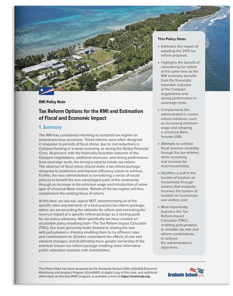

 Download PDF
Download PDF

Marshall Islands
Tax Reform Options for the RMI and Estimation of Fiscal and Economic Impact

This Policy Note explores comprehensive tax reform strategies for the Republic of the Marshall Islands (RMI), aiming to modernize its outdated tax system. The RMI is currently benefiting from strong economic performance and favorable financial outcomes from Compact negotiations, and is therefore in an ideal position to implement these reforms. The Note highlights the introduction of a modern tax regime that replaces existing taxes with a broad-based consumption tax and a business profits tax, promoting fiscal revenue neutrality while enhancing efficiency and equity in the tax system. These reforms are aligned with the RMI government's social policies, such as increasing the minimum wage and introducing Universal Basic Income, which are intended to improve the financial wellbeing of lower-income households. Finally, a new tool, the Tax Reform Impact Calculator (TRIC), is introduced to assist policymakers in estimating the fiscal impacts of various tax scenarios, and to facilitate informed decision-making and stakeholder engagement.
Link to This Page:

Sign up for the PITI-VITI mailing list to receive notifications of future publications.
Choose Topics

Thank You for Subscribing to the PITI-VITI Mailing List!

 1.808.523.1650
1.808.523.1650






 Oct 10, 2025
Oct 10, 2025
 Monique
Monique






 Related Publications
Related Publications
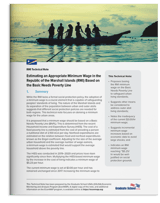
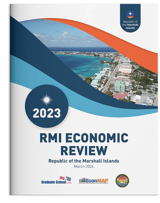

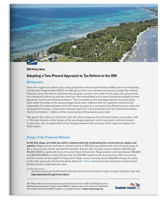
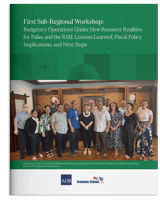
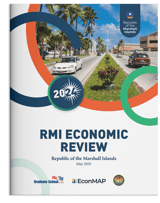
 August 2025
August 2025 Photo Gallery
Photo Gallery










 COMPLETE GALLERY
COMPLETE GALLERY
 HOME
HOME NEWSROOM
NEWSROOM INITIATIVES
INITIATIVES CONFERENCES
CONFERENCES TRAINING
TRAINING ABOUT PITI-VITI
ABOUT PITI-VITI CONTACT
CONTACT ACCESSIBILITY
ACCESSIBILITY 1.808.523.1650
1.808.523.1650

 900 Fort Street Mall, Suite 1540 Honolulu, Hawaii 96813
900 Fort Street Mall, Suite 1540 Honolulu, Hawaii 96813


